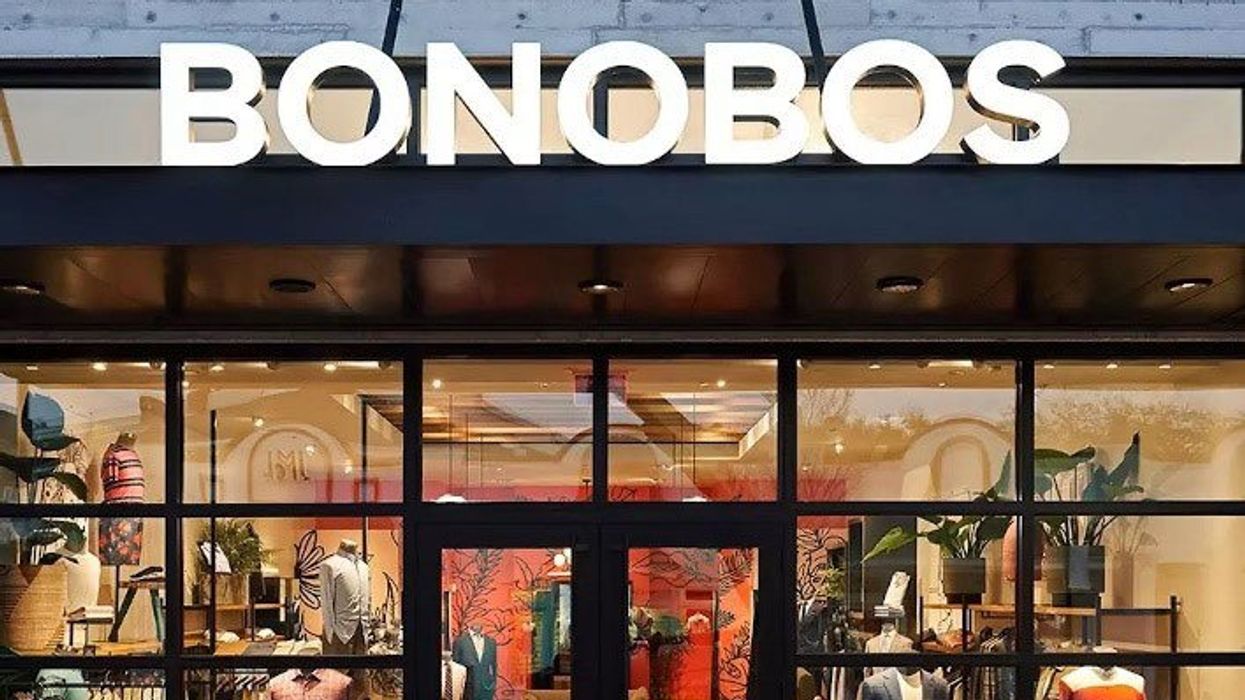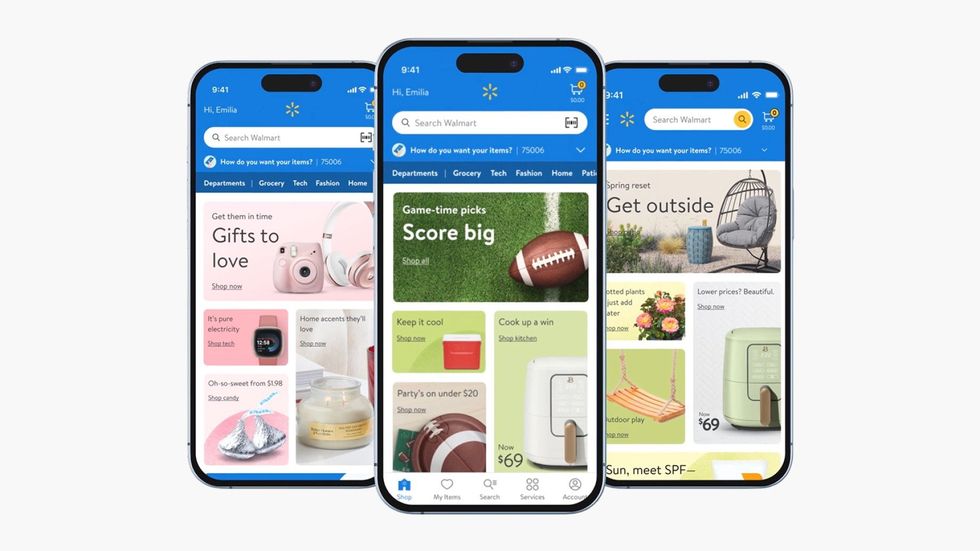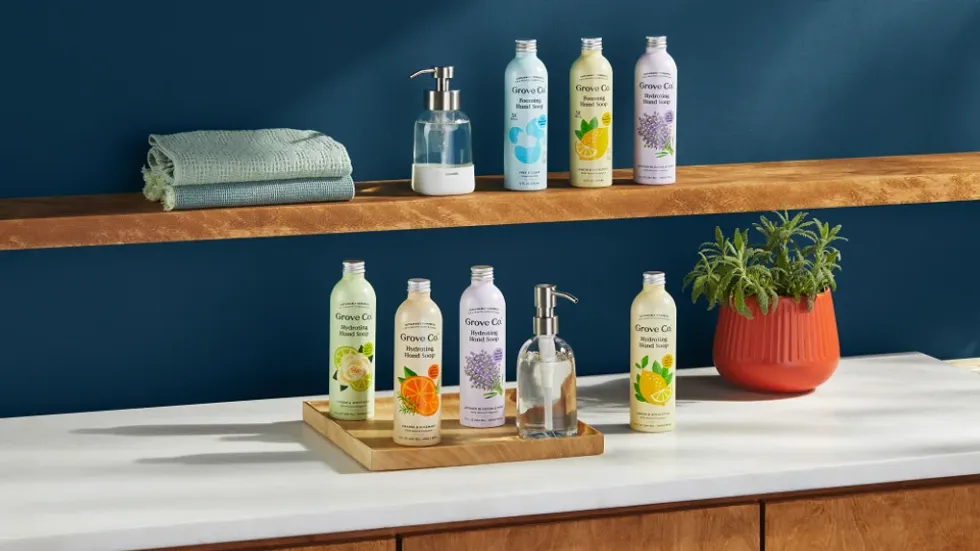Retail Channels
17 April 2023
Walmart doesn't want to be a house of brands
Bonobos didn't fit into Walmart's flywheel. Here's what that says about the retailer's ecommerce strategy.

Walmart sold Bonobos for $75M. (Courtesy photo)
Bonobos didn't fit into Walmart's flywheel. Here's what that says about the retailer's ecommerce strategy.

Walmart sold Bonobos for $75M. (Courtesy photo)
Welcome to Dealboard. In this weekly feature, The Current is providing a look at the mergers, acquisitions and venture capital deals making waves in ecommerce, CPG and retail.
In 2017, Walmart bought digitally native apparel brand Bonobos for $310 million. At the time, the acquisition was seen as a landmark for a generation of brands that brought Silicon Valley savvy to the consumer goods market, and created a whole new playbook called DTC that helped many more brands launch in the process. In the 2017 announcement about the deal, CEO Andy Dunn talked about how Bonobos aimed “to give men a completely different product and shopping experience: better fitting, higher quality clothing, in new and imaginative ways.” The then-10-year-old brand centered a focus on not just the products that consumers bought, but how they shopped for them. With Dunn at the helm of a stable of digitally native vertical brands at Walmart, this approach would “help shepherd in the next era of retail,” he said.
Fast-forward to 2023. On April 13, Walmart announced a deal to sell WHP Global and Express for $75 million. The deal, which includes a provision that will allow Express to license Bonobos, comes after Walmart sold several other DTC brands it acquired in that period, including outdoor retailer Moosejaw, digital fashion retailer Modcloth and intimates retailer Bare Necessities.
In search of a reason for this rollback, we could go into a long rumination about the evolution of direct-to-consumer brands, the state of venture capital, the pitfalls of post-acquisition integration and even the economic headwinds of the moment.
But if you’ve followed Walmart’s moves closely over the last two years, a simpler truth seems clear: Walmart changed strategy, and Bonobos was no longer a fit.
When the Bonobos deal was announced in 2017, Walmart ecommerce was still in test-and-learn mode. The nation’s largest retailer recognized that digital shopping was growing, and it needed new tools in the race against Amazon and fast-gaining Target. At the time, several building blocks were in place, with a digital marketplace launched in 2010 and significant investment. With the $3.3 billion acquisition of Jet.com in 2016, Walmart brought on both additional platform capabilities and a leader of ecommerce in Marc Lore. From there, it went on an acquisition spree that included the brands noted above, as well as India-based ecommerce giant Flipkart.
Under this strategy, Walmart had a number of different brands under its roof. Distributed across categories, each still existed as a standalone entity. But as Dunn’s role showed, Walmart could learn from each. It wasn’t clear how the brands would ultimately be integrated into the retailer’s stores and offerings, but the additional labels at the least provided a base layer for a new digital push.
Then the pandemic arrived. Walmart ecommerce entered build mode. Out of necessity, Walmart ecommerce had to transform from an experiment to a juggernaut. Over the two years of 2020 and 2021, It expanded in-store pickup capabilities and delivery, launched a membership program in Walmart+ and grew a fulfillment network that enabled it to more quickly reach a wider swath of the 90% of the U.S. population that executives famously say lives within 10 miles of its stores.
When the dust settled, Walmart emerged with a massive ecommerce business in place, having more than doubled sales from $30.28 billion in 2019 to $67.39 billion in 2021, according to Insider Intelligence. It was also a very different ecommerce business from 2019. On earnings calls, executives were not talking about acquisitions. Instead, they were now talking about Walmart’s flywheel, which put a marketplace and logistics at the center to unlock advantages on price and introduce more advertising opportunities.
The house of brands was no longer Bonobos and Modcloth. Instead, it was the retail media business Walmart Connect, the data analytics business Walmart Luminate and the white-label last-mile delivery service Walmart GoLocal.
Like Amazon before it, Walmart found that the key to ecommerce growth was not owning a portfolio of omnichannel labels like Bonobos, but building out services that could power new and high-growth digital businesses.
The brands, each with their own sites and stores, were not the engine of growth; rather, it was the infrastructure that merchandised and delivered items from Walmart's digital shelf.
 Walmart's revamped app. (Courtesy photo)
Walmart's revamped app. (Courtesy photo)As this strategy emerged, new priorities did, too. Lore also left in 2021. There were also signs that the retailer learned plenty from the companies it acquired. The fall relaunch of a new line of intimates and sleepwear called Joyspun may have looked right at home on Bare Necessities.
In the meantime, Walmart didn’t do much to integrate Bonobos into its plans.
“Other than learning from and experimenting with Bonobos, Walmart ultimately didn’t really know what to do with the brand and didn’t have all that much ambition to develop it,” wrote GlobalData Managing Director Neil Saunders. “With the focus now firmly on driving the Walmart.com marketplace and on investing in the non-food proposition in stores, Bonobos is even less relevant to Walmart’s future goals.”
Today, Walmart continues to acquire companies and roll out a host of innovation-minded experiments, but all of these tend to roll back up to the dual goals of making it easier and more delightful to shop on Walmart.com, and adding more efficiency and automation to the supply chain that moves goods. The next set of expansion for Walmart seems likely to run through additional business verticals that can be added to the flywheel such as fintech and healthcare – not additional consumer categories like electronics and home goods. The prize, executives said this month, is increased profits as a result of the high-margin returns that internet-based businesses produce.
This is usually the point when many commentators declare that DTC is dead. After all, Bonobos is just the latest in a series of sales by Walmart. Take them all together, it would be easy to form a narrative about how DTC brands can't make the jump to mass retail. But before you start writing the obituary, let’s be clear: Walmart's gradual sell-off of late-2010s acquisitions doesn’t mean the retailer is done with digitally native brands. In fact, Walmart's aisles are likely to keep looking more and more like your Instagram feed. Even a cursory scan of recent headlines shows that the retailer continues to add products from startups to its assortment. Just recently, it introduced drinkware brand Reduce, cereal darling Magic Spoon, temporary tattoo brand Inkbox and eco-friendly home goods brand Grove Collaborative. Another result of the pandemic-prompted shift in shopping is that digitally native brands are finding opportunities to increase sales by introducing products through retail channels, and Walmart will continue to be a prime destination of this expansion, especially as the retailer seeks to keep aggressively growing its marketplace.
But introducing a brand to the assortment through a wholesale or third-party relationship is much different from owning and operating standalone stores. In the end, the goal of a marketplace-based flywheel strategy is to spur more sales on Walmart.com, not Bonobos. Put another way: Walmart already has its own stores. It doesn't need to bring others into the fold. It does, however, need the products that brands offer, especially as they continue to find new avenues to meet consumer tastes and build loyalty.

Grove Collaborative is expanding at Walmart. (Courtesy photo)
Going forward, Bonobos may in fact find more success under WHP Global. The firm’s business is built around acquiring consumer brands, and continuing to build them out as standalone labels with a focus on digital growth. After years of neglect in Walmart boardrooms, that’s likely what Bonobos needs. The brand continues to deliver “double-digit sales growth,” an announcement noted, and the licensing deal with Express may give it a path to expansion through an already-well-known mall retailer with 540 locations. It also may benefit from shared resources at WHP. Bonobos joins a portfolio of 10 brands, and it may continue to grow.
While the deal is making headlines now, this Walmart discount ultimately likely won’t hurt Bonobos’ legacy. The menswear brand continues to be in the first sentence of brands that are credited with developing the DTC tactics that changed retail in the last decade. That will continue to enable brands like Magic Spoon and Inkbox to start quickly, even if growth now ultimately comes through a diversified channel strategy by selling through platforms like Walmart. While the two companies couldn’t make a long-term partnership work together, it’s still true that, in retail’s current construction, you don’t have Walmart’s current strategy without Bonobos.
Kintra Fibers, a materials science company that developed bio-based polyester, raised $8 million in a round led by H&M Group. Participants included FWD, Fashion for Good, New York Ventures, TRE Ventures, Tech Council Ventures and FAB Ventures, as well as angel investors.
Cure, a functional hydration brand, raised $5.6 million in a Series A financing. The round was led by Lerer Hippeau, with participation from Valedor Partners, Simple Food Ventures, Great Oaks Venture Capital, Joyance Partners, Silas Capital and tennis star Kim Clijsters. The female-founded electrolyte brand plans to expand to more retail doors, and grow its team.
The Razor Group, an ecommerce aggregator, acquired German competitor The Stryze Group. Along with the deal, Stryze's largest shareholder Upper90 joined The Razor Group’s second close of a Series C, bringing the round to €80m.
Colavita acquired O Olive Oil & Vinegar. The brand will be led by Paolo Colavita, who is currently VP of West Coast operations for Colavita. The teams aim to expand the brand to more U.S. and global markets. Terms were not disclosed.Labor disputes on the West Coast could cause further disruption heading into peak season.
When the first half of 2023 is complete, imports are expected to dip 22% below last year.
That’s according to new data from the Global Port Tracker, which is compiled monthly by the National Retail Federation and Hackett Associates.
The decline has been building over the entire year, as imports dipped in the winter. With the spring, volume started to rebound. In April, the major ports handled 1.78 million Twenty-Foot Equivalent Units. That was an increase of 9.6% from March. Still it was a decline of 21.3% year over year – reflecting the record cargo hauled in over the spike in consumer demand of 2021 and the inventory glut 2022.
In 2023, consumer spending is remaining resilient with in a strong job market, despite the collision of inflation and interest rates. The economy remains different from pre-pandemic days, but shipping volumes are beginning to once again resemble the time before COVID-19.
“Economists and shipping lines increasingly wonder why the decline in container import demand is so much at odds with continuous growth in consumer demand,” said Hackett Associates Founder Ben Hackett, in a statement. “Import container shipments have returned the pre-pandemic levels seen in 2019 and appear likely to stay there for a while.”
Retailers and logistics professionals alike are looking to the second half of the year for a potential upswing. Peak shipping season occurs in the summer, which is in preparation for peak shopping season over the holidays.
Yet disruption could occur on the West Coast if labor issues can’t be settled. This week, ports from Los Angeles to Seattle reported closures and slowdowns as ongoing union disputes boil over, CNBC reported. NRF called on the Biden administration to intervene.
“Cargo volume is lower than last year but retailers are entering the busiest shipping season of the year bringing in holiday merchandise. The last thing retailers and other shippers need is ongoing disruption at the ports,” aid NRF Vice President for Supply Chain and Customs Policy Jonathan Gold said. “If labor and management can’t reach agreement and operate smoothly and efficiently, retailers will have no choice but to continue to take their cargo to East Coast and Gulf Coast gateways. We continue to urge the administration to step in and help the parties reach an agreement and end the disruptions so operations can return to normal. We’ve had enough unavoidable supply chain issues the past two years. This is not the time for one that can be avoided.”